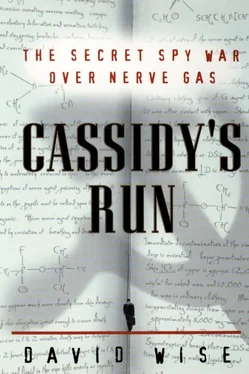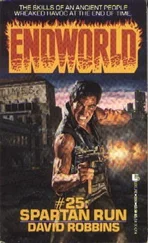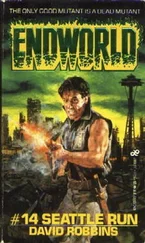“We had spot surveillance on IXORA because he was so predictable,” Weis said. “Initially we were on him all the time. It wasn’t necessary to maintain continuous surveillance once we established a pattern—what time he went to work and when he came home and what he did on weekends.
“We could see whatever he did, which wasn’t very much. He was a real lost soul.”
Edgar Dade formed much the same impression of IXORA. “He was a strange bird, pale complexion, frail, you would never think he was a spy. You would never think he was anything.”
Dade did remember one incident. Late at night, Freundlich left his apartment and took a trip by subway to Manhattan. “I was on the surveillance,” Dade said. “It was difficult because the train was almost empty.” Dade watched as Freundlich got off in midtown and went to the main post office, where he mailed a letter. “In Soviet intelligence procedure, that was considered a safer way to mail a letter,” Dade said. The probable reason, he explained, is that if a spy is seen dropping a letter in a mailbox, it can be retrieved by a counterintelligence agency more easily than if it is mixed in with thousands of letters at a central post office. “He was definitely doing something,” Dade added. “You don’t normally go all the way downtown from the Bronx at night by subway to mail a letter.” Freundlich often traveled around New York City, mostly by subway, and some of his trips—such as his late-night excursion to the main post office—appeared to be related to an intelligence purpose.
On December 9, 1971, with the bureau listening in on his telephone, Freundlich received a cryptic call late at night. The call might have been a warning of some kind of military action. Freundlich left the building and did not return until after 2 A.M. To the FBI agents who followed him at a discreet distance, Freundlich appeared to be “dry-cleaning” himself in the classic manner of a spy, changing trains and doubling back on his trail, in an effort to lose any possible surveillance. It was an exercise that agents on both sides usually carried out before a meeting. He was not seen meeting with anyone that night, however.
Jill Freundlich recalled one mysterious facet of “Uncle Eddie’s” life. “Edmund had one friend in the U.S. whom he referred to as ‘Amigo.’ He never mentioned his name.”
The FBI was anxious to learn more about Freundlich and to determine, if possible, how he would communicate with the Soviets if he ever received a warning call from WALLFLOWER. Although Cassidy’s instructions were clearly meant to provide Moscow with advance warning of a U.S. attack on either the Soviet Union or another country, the FBI decided the instructions were general enough that he might be justified in making the call if a conflict anywhere in the world resulted in American forces being put on a high state of alert.
In May 1972 the military forces of India and Pakistan clashed in Kashmir. That could have been a sufficient pretext for the call, but at the time, U.S. forces were still deployed in Vietnam, and on May 8, they mined Haiphong harbor. Because of the possibility that the mining might escalate the conflict, STRICOM and American forces worldwide went to a DEFCON 4 state of alert. [6] DEFCON stands for “defense condition.” There are five categories of alerts. The lower the number, the greater the level of readiness. For example, DEFCON 5 is the normal state of alert; DEFCON 2 means war is imminent; and DEFCON 1 means hostilities have begun. On May 8, when U.S. forces went to DEFCON 4, the Pacific Command was already at DEFCON 3 because of the Vietnam War.
Following instructions from the FBI, Cassidy placed a call to Freundlich at his apartment and gave the parol inquiring about his supposed order for twenty-two books. He followed up with a letter in which, in secret writing, Cassidy advised Freundlich that the U.S. military had gone on a worldwide alert, which was true, with forces in the Pacific at a higher degree of alert.
To what extent the FBI considered the risk that the phone call might trigger a Soviet reaction is uncertain. [7] If officials at headquarters did weigh the risk, they did not communicate this to the Tampa office, according to Jack O’Flaherty.
Since the warning came in the context of an escalation in Vietnam and a possible war on the Indian subcontinent, rather than an attack on the Soviet Union, perhaps they felt the danger was minimal. Yet the phone call warned of possible war; Cassidy stuck to the script and did not say anything specific about Kashmir or Haiphong. The language of the parol gave no clue that the warning related to regional conflicts; only the follow-up letter pointed to Asia. One might conjure up a scenario out of Dr. Strangelove, in which the Soviets, panicked and persuaded that the United States was about to initiate a nuclear war, launch a preemptive first strike. As with the deception over nerve gas, risks were taken in the cold war that may have seemed reasonable at the time but in retrospect are chilling.
As soon as Freundlich received Cassidy’s warning call, he left his apartment and was gone for several hours. The FBI agents who had him under cautious surveillance believe he put his report in a dead drop near a building on the Grand Concourse, in the Bronx. But they could not be sure of that.
As Robert C. Loughney, one of the FBI agents, put it, “After IXORA got the call, and he reacted, the question was how close to get with our surveillance. If we went forward with a full-court press, he would know we were into his knickers.”
In July 1972, two months after his telephone call to Freundlich, Cassidy traveled to Washington to meet with Mikhail Danilin. At the meeting, Cassidy recounted, “I mentioned I had called the New York contact. And Danilin was surprised. He looked a little bewildered but passed it off right away and didn’t question me. It was clear to me he didn’t know what I was talking about.”
The FBI concluded that no one in the GRU had told Danilin about Cassidy’s call. Certainly, Freundlich was under standing orders to report any call from Cassidy and possibly other sentinels. Perhaps there were real Soviet spies in the American military with similar instructions; there was no way to know. The cryptic call IXORA had received six months earlier might have come from a real spy. But either the GRU had cut Danilin out of the loop, for some internal bureaucratic reason, or it had simply neglected to keep him informed.
Danilin may well have let his organization know exactly how he felt about what had happened. On November 2, when Danilin asked Cassidy for specific military documents by name—implying the existence of a genuine mole—he also ordered him to destroy the instructions and parol for the telephone warning.
He was directed to have no further contact with Edmund Freundlich. Uncle Eddie would receive no more calls from Joe Cassidy. But the FBI had plans for IXORA.
CHAPTER: 14
THE BIG APPLE
In June 1973,four months after he retired from the army, Cassidy got a letter from his Soviet controllers instructing him to purchase a shortwave radio.
“Buy a new Zenith Royal 7000 radio,” the message said. “Do it outside your home city and without registering your name. Pay in cash.”
Cassidy acted on his instructions. “I bought the radio for around two hundred and fifty dollars, a Zenith Royal 7000 Trans-Oceanic,” he said. “I still have it.” The Russians provided him with certain times and frequencies to listen to Radio Moscow on the mornings of the first and third Mondays of each month. The messages were transmitted in Morse code, in a cipher keyed to the same miniature dictionary, The Universal Webster, that Cassidy had been given by the Soviets nearly seven years earlier. He used the dictionary to decipher the coded messages.
Читать дальше












